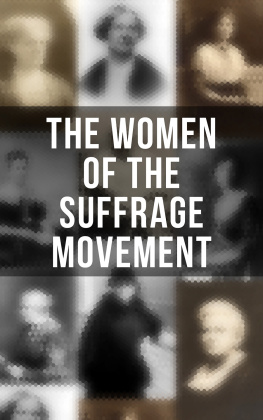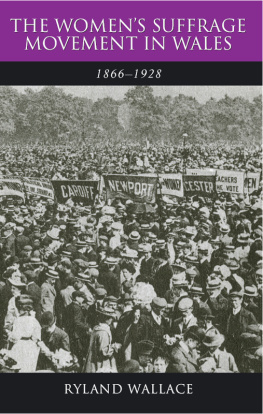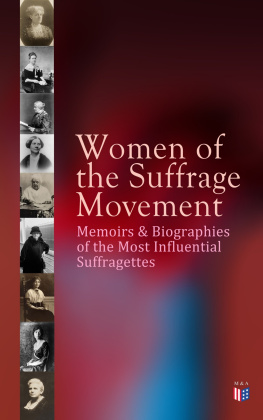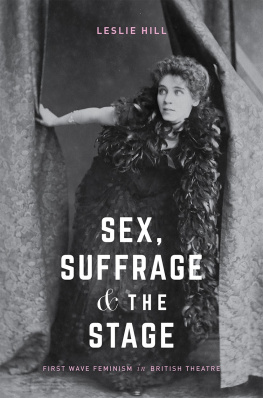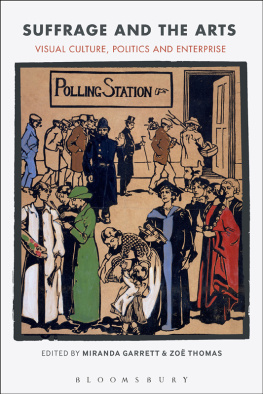
First published 1978
This edition first published in 2013
by Routledge
2 Park Square, Milton Park, Abingdon, Oxon, OX14 4RN
Simultaneously published in the USA and Canada
by Routledge
711 Third Avenue, New York, NY 10017
Routledge is an imprint of the Taylor & Francis Group an informa business
1978 Brian Harrison
All rights reserved. No part of this book may be reprinted or reproduced or utilised in any form or by any electronic, mechanical, or other means, now known or hereafter invented, including photocopying and recording, or in any information storage or retrieval system, without permission in writing from the publishers.
Trademark notice: Product or corporate names may be trademarks or registered trademarks, and are used only for identification and explanation without intent to infringe.
British Library Cataloguing in Publication Data
A catalogue record for this book is available from the British Library
ISBN: 978-0-415-53409-3 (Set)
eISBN: 978-0-203-10425-5 (Set)
ISBN: 978-0-415-62336-0 (Volume 20)
eISBN: 978-0-203-10408-8 (Volume 20)
Publisher's Note
The publisher has gone to great lengths to ensure the quality of this reprint but points out that some imperfections in the original copies may be apparent.
Disclaimer
The publisher has made every effort to trace copyright holders and would welcome correspondence from those they have been unable to trace.
1978 Brian Harrison
Croom Helm Ltd, 2-10 St John's Road, London SW11
British Library Cataloguing in Publication Data
Harrison, Brian, b. 1937
Separate spheres.
1. Women Suffrage Great Britain History
I. Title
324.30941 JN983
ISBN 0-85664-689-X
Printed in Great Britain by
Billing & Sons Ltd, Guildford, London and Worcester
CONTENTS
LIST OF TABLES AND FIGURE
LIST OF ABBREVIATIONS
| NUWSS | National Union of Women's Suffrage Societies |
| WSPU | Women's Social and Political Union |
| NLOWS | National League for Opposing Woman Suffrage |
| NUWW | National Union of Women Workers |
| WLGS | Women's Local Government Society |
ACKNOWLEDGEMENTS
References to the sources which have been consulted are listed at the end of each chapter; in each individual footnote, references are first supplied for the sources quoted in the text, in order of appearance, followed by references to other relevant sources. Place of publication is supplied only for books published outside London. A full reference is supplied for each source in the footnote to the first citation in each chapter.
I gratefully acknowledge here the invaluable help I have received from Professor J.P.C. Roach, of Sheffield University, on James Fitzjames Stephen; from Mrs Helen Moyes (ne Fraser) and Mrs Gertrude Horton on Gladys Pott; from Professor Richard Cosgrave, of the College of Liberal Arts, University of Arizona, on A.V. Dicey; from John MacCallum Scott, on his father; and from Mrs Leeming of Worcester, for access to her superb collection of suffrage postcards. Remarkably generous help has been extended to me by experts on the medical aspects of my subject:Professor Martin Vessey, of the Department of Social Medicine, Oxford University; Dr Sheila T. Callender, Consultant in Medicine at the Nuffield Department of Clinical Medicine, Oxford; Professor Roger Short, of the Department of Obstetrics and Gynaecology, Edinburgh; and my colleague Professor David Grahame-Smith.
The following allowed me to quote or refer to their unpublished writings: Hon. C.M. Woodhouse, from his biography of Victor Lytton; Dr M.D. Pugh, of the University of Newcastle, from his thesis on the 1918 Reform Act; and Dr Martin Ceadel, of Imperial College London, from his thesis on the Peace Movement. The following have given me permission to quote documents in their care: The Bishop of Durham, for the Hensley Henson diaries; Mrs Halpin, for the Raven Thomson letter quoted on p. 231 ; Mary Lutyens, for the letter quoted on p. 162; and Mrs Almora Murdoch for the memoir of her mother quoted on p. 162. Sir Charles Hobhouse, Bt. allowed me to consult his father's manuscript diaries; the Earl of Cromer gave me permission to quote from the first Earl's autograph collection in the Baring Archives; and the Librarian of Pusey House, Oxford, Rev. Peter Cobb, gave me much understanding help when I was consulting the Mary Ward MSS , which have been quoted by permission of the Governors of Pusey House.
The tape-recorded interviews I have conducted with participants in the twentieth-century British women's movement with the aid of a grant from the Social Science Research Council have been helpful at several points. I wish the late Lady Ricardo, Maude Kate Smith and Dr Letitia Fairfield were able to read this appreciation of their generosity, more tangible than I was able to offer them at the time. Mrs Gwen Coleman of Shiplake, Miss Jessie Stephen of Bedminster and Mrs Leonora Cohen of Rhos-on-Sea not only gave me interviews which were memorable in more ways than one: they also gave me permission to quote from them. More particular obligations are acknowledged in individual footnotes.
FOR A.B.J.
PREFACE
I am rather surprised to find myself writing a book about the opposition to woman suffrage. I did not at first intend to do so. The subject interested me only as part of a larger enquiry begun four years ago into women's organisations in Britain between 1900 and 1940. I felt that sense could be made of the woman suffrage movement of its attitudes, tactics and overall flavour only by studying its enemy. So I read some anti-suffrage periodicals and biographies and wrote one of those hasty seminar papers with which some university teachers have to clothe their nakedness when caught midway between one piece of research which has been published and another which has hardly yet begun. I felt that this investigation would assist the larger project, but it was also interesting in its own right. Parts of it were scribbled down on the train from Oxford to London on 3 March 1975, when I was already en route to deliver it for the first time. Parts of it never got written down at all.
Historical, and perhaps all, research never proceeds in a straight line. I found that my seminar paper provoked discussions which interested me, and convinced me that I might even perhaps have something to say. I began to read more widely, though still persisting with my broader interest in the women's movement as a whole. A widening divergence followed between the paper I had originally written and the completely rewritten version of it which was forming in my mind. But when I began rewriting, one article grew into two, and two articles grew into a small book. The sheer interest of British anti-suffragism led me to hope that its history would, if published in book form, reach more readers than an academic article. I also hoped that the discussions provoked by my seminar paper would continue on a broader plane, and so assist the growth of academic writing on British women's history.
Historians, as creatures of their time, acquire a host of debts in the course of research which it is a pleasure to acknowledge. Here I thank those who heard my seminar paper and whose sympathy with my aims if not always with my conclusions led them to ask questions which turned out to be fruitful for me; several other debts are acknowledged under that heading and in the footnotes. I have a larger obligation ; the controversial nature of my subject led me naturally to my dedication. With my first book I acknowledged my debt to my father. With this book, I acknowledge my debt to my sixth-form history master at Merchant Taylors School, Northwood, during the 1950s Alexander Jeffries. His interest in his subject was infectious, his skill in encouraging younger historians was remarkable. But I was not alone in finding his personality more remarkable still. He and one or two other masters constituted for me a sort of oasis in a rugby-football-obsessed all-male institution where life would otherwise have been bleak indeed. It is a much pleasanter place now, but with Alex Jeffries retirement it lost a history master who took the trouble to relate history to his own and his pupils direct experience, and whose learning seemed to have moulded his whole temperament. It had given him high standards, yet an unfailing good humour and wisdom: passion on some subjects, yet always receptiveness to argument: breadth of interests and sympathy, yet also, one suspected, firmly held beliefs: and above all, tolerance and humanity of an unfailing and positive kind which seemed at the time almost a revelation. Subsequent experience has served only to convince me how rare these qualities are. When embarking on so controversial a subject as this, I was inevitably drawn into thinking of him.


